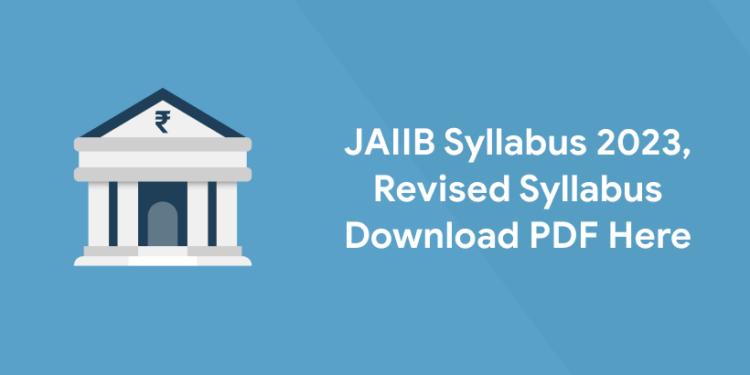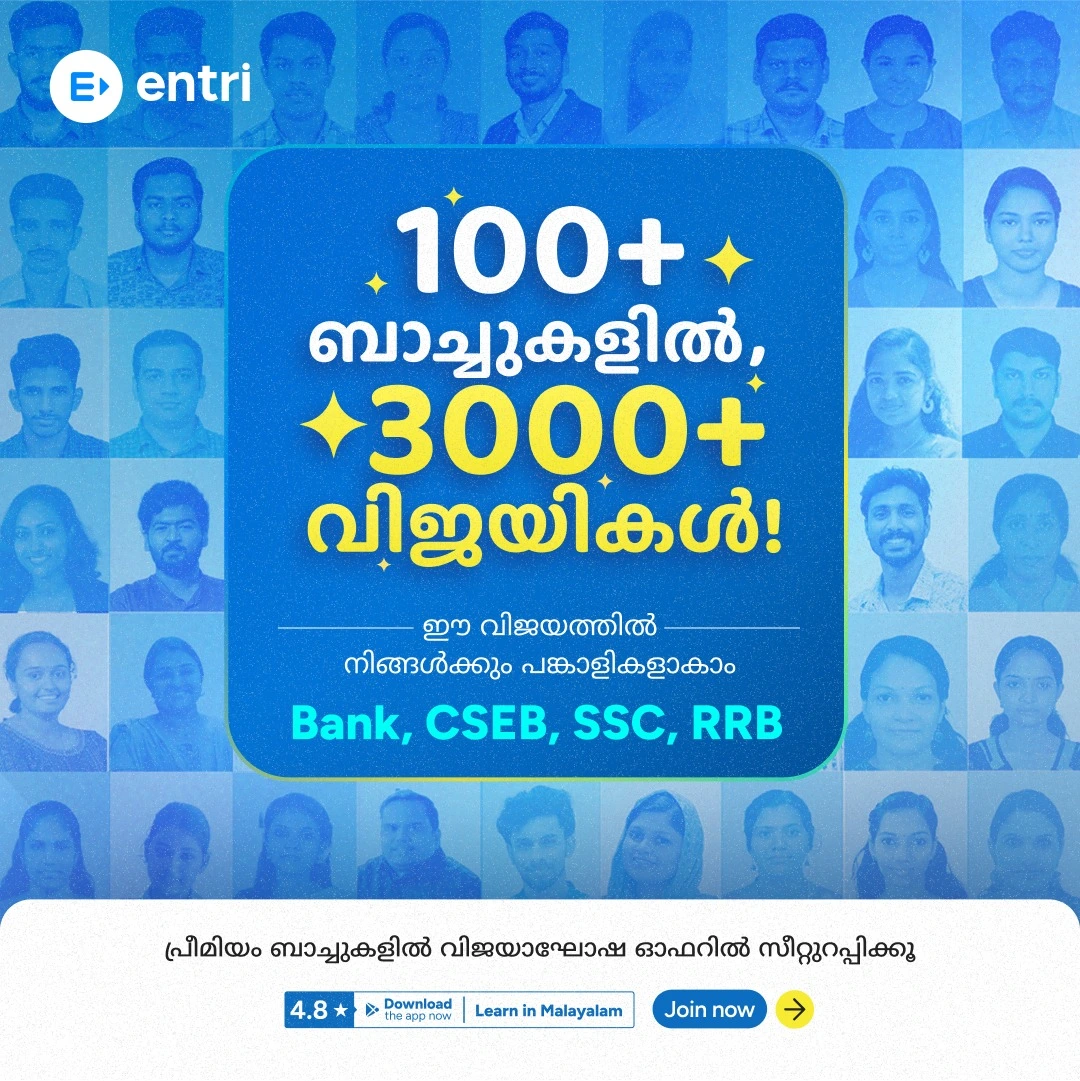The Institute of Banking and Finance officially announces the JAIIB June Exam Date 2023 on their official websites, along with many other crucial facts. The Junior Associate of Indian Institute of Bankers Test will be held at several examination locations around the country, and IIBF will release the dates. Check out the JAIIB Exam 2023 qualifying requirements, test schedule, and other details if you’re an interested banker.
JAIIB Syllabus 2023 Revised
JAIIB Revised Syllabus 2023 is for the candidates going to appear for the JAIIB Exam from 2023 onwards. JAIIB Syllabus provides a crystal clear outline of the topics to prepare for the examination. Aspirants after being familiar with JAIIB Syllabus 2023 should plan a strategy for their preparation.
JAIIB Syllabus Revised
As per the changes made by IIBF, JAIIB Revised Syllabus 2023 comprises 4 compulsory subjects. Aspirants should have a thorough and deep knowledge of JAIIB Syllabus so that not a single topic is left behind.
Paper 1: Indian Economy and Indian Financial System (IE & IFS)
Paper 2: Principles and Practices of Banking (PPB)
Paper 3: Accounting and Financial Management for Bankers (AFM)
Paper 4: Retail Banking and Wealth Management (RBWM)
Paper 1: Indian Economy and Indian Financial System (IE & IFS)
The first paper of JAIIB Updated Syllabus 2023 is Indian Economy and Indian Financial System. There are four modules in the JAIIB Paper 1 Syllabus: Indian Economic Architecture, Economic Concepts Related to Banking, Indian Financial Architecture, and Financial Products and Services. Here, we have provided the topics of each module.
Module A: Indian Economic Architecture
An Overview of Indian Economy, Sectors of the Indian Economy, Economic Planning in India & NITI Aayog, Role of Priority Sector and MSME in the Indian Economy, Infrastructure including Social Infrastructure, Globalization- Impact on India, Economic Reforms, Foreign Trade Policy, Foreign Investments and Economic Development, Intemational Economic Organizations (World Bank, IMF, etc.), Climate change, Sustainable Development Goals (SDGs), Issues Facing Indian Economy.
Module B: Economic Concepts Related to Banking
Fundamentals of Economics, Microeconomics, and Macroeconomics and Types of Economies, Supply and Demand, Money Supply and Inflation, Theories of Interest, Business Cycles, Monetary Policy and Fiscal Policy, System of National Accounts and GDP Concepts, Union Budget.
Module C: Indian Financial Architecture
Indian Financial System-An Overview, Indian Banking Structure, Banking Laws – Reserve Bank of India Act, 1934 & Banking Regulation Act, 1949, Development Financial Institutions, Micro Finance Institutions, Non-Banking Financial Companies (NBFCs),Insurance Companies, Indian Financial System- Regulators and Their Roles, Reforms & Developments in the Banking Sector
Module D: Financial Products and Services
Financial Markets, Money Markets, Capital Markets and Stock Exchanges, Fixed Income Markets – Debt and Bond Markets, Foreign Exchange Markets, Interconnectedness of Markets and Market Dynamics, Merchant Banking Services, Derivatives Market, Factoring, Forfaiting and Trade Receivables Discounting System (TReDS), Venture Capital, Lease Finance and Hire Purchase, Credit Rating and Credit Scoring, Mutual Funds, Insurance Products, Pension Products, Para Banking and Financial Services Provided by Banks, Real Estate Investment Trusts (REITs) and Infrastructure Investment Trusts
Paper 2: Principles and Practices of Banking (PPB)
Principles and Practices of Banking is the second paper for JAIIB Syllabus. PPB comprises four modules, General Banking Operations, Functions of Banks, Banking Technology, and Ethics in Bank and Financial Institutions. Here, we have listed down the module-wise topics for Paper 2.
Module A: General Banking Operations
Banker-Customer Relationship, AML- KYC Guidelines, Operational Aspects of KYC, Opening Accounts of Various Types of Customers, Operational Aspects of Deposit Accounts, Operational Aspects of Handling Clearing/Collection/Cash, Banker’s Special Relationship, Foreign Exchange Remittance Facilities for Individuals, Operational Aspects of NRI Business, Foreign Currency Accounts for Residents and Other Aspects, Cash Management Services and its Importance, Payment and Collection of Cheques and Other Negotiable Instruments, Responsibility of Paying Bank, Responsibility of Collecting Bank, Ancillary Services, Financial Inclusion & Financial Literacy, Customer Service Guidelines, Duties & Rights of a Banker and Customer Rights, Grievancence Redressal & RBI Integrated Ombudsman Scheme 2021, The Consumer Protection Act, 2019: Preamble, Extent and Definitions, The Right to Information Act, 2005.
Module B: Functions of Banks
Principles of Lending, Different Types of Borrowers, and Types of Credit Facilities, Appraisal and Assessment of Credit Facilities, Operational Aspects of Loan Accounts, Types of Collaterals and their Characteristics, Different Modes of Charging Securities, Documentation, Non-Performing Assets/ Stressed Assets, Important Laws Relating to Recovery of Dues, Contracts of Indemnity, Contracts of Guarantee & Bank Guarantee, Letters of Credit, Deferred Payment Guarantee, Laws Relating to Bill Finance, Personal Finance, Priority Sector Advances, Agricultural Finance, Finance to MFIs/Co-Lending Arrangements with NBFCs, Micro, Small and Medium Enterprises in India, Government Sponsored Schemes, Self-Help Groups.
Module C: Banking Technology
Essentials of Bank Computerisation, Operational Aspects of CBS Environment, Alternate Delivery Channels Digital Banking, Data Communication Network and EFT Systems, Digital Payment Systems-NPCI, Impact of Technology Adoption and Trends in Banking Technology, Security Considerations and Mitigation Measures in Banks, Operational Aspects of Cyber Crimes/Fraud Risk Management in Cyber Tech, Technology Trends in Banking, e-RUPI, Fintech – RegTech, Sup Tech, Hashtag Banking etc.
Module D: Ethics in Banks and Financial Institutions
Ethics, Business Ethics & Banking: An Integrated Perspective, Ethics at the Individual Level, Ethical Dimensions: Employees, Work Ethics and the Workplace, Banking Ethics: Changing Dynamics
Paper 3: Accounting and Financial Management for Bankers (AFM)
Paper 3 of JAIIB Syllabus 2023 is Accounting and Financial Management for Bankers. Accounting principles and processes, financial statements & core banking systems, financial management, and taxation & fundamentals of costing are the modules that an aspirants have to study for AFM. Here, candidates can check the topics of each module.
Module A: Accounting Principles and Processes
Definition, Scope & Accounting Standards including Ind AS, Basic Accountancy Procedures, Maintenance of Cash/Subsidiary Books and Ledger, Bank Reconciliation Statement, Trial Balance, Rectification of Errors and Adjusting & Closing Entries, Depreciation and its Accounting, Capital and Revenue Expenditure, Bills of Exchange, Operational Aspects of Accounting Entries, Back Office Functions/Handling Unreconciled Entries in Banks, Bank Audit & Inspection.
Module B: Financial Statements and Core Banking Systems
Balance Sheet Equation, Preparation of Final Accounts, Company Accounts-I, Company Accounts-II, Cash Flow and Funds Flow, Final Accounts of Banking Companies, Core Banking Systems and Accounting in Computerised Environment.
Module C: Financial Management
Financial Management -An Overview, Ratio Analysis, Financial Mathematics Calculation of Interest and Annuities, Financial Mathematics Calculation of YTM, Financial Mathematics- Forex Arithmetic, Capital Structure and Cost of Capital, Capital Investment Decisions/Term Loans, Equipment Leasing/Lease Financing, Working Capital Management, Derivatives.
Module D: Taxation and Fundamentals of Costing
Taxation: Income Tax/TDS/Deferred Tax, Goods & Services Tax, An Overview of Cost & Management Accounting, Costing Methods, Standard Costing, Marginal Costing, Budgets and Budgetary Control, Bibliography.
Paper 4: Retail Banking and Wealth Management (RBWM)
Retail Banking and Wealth Management is a new paper added to the JAIIB Syllabus. In this paper modules mentioned are the following: Retail Banking, Retail Products and Recovery, Support Services-Marketing of Banking Services/Products, and Wealth Management. To know the topics, aspirants should refer below.
Module A: Retail Banking
Retail Banking: Introduction, Retail Banking: Role within the Bank Operations, Applicability of Retail Banking Concepts and Distinction between Retail and Corporate/Wholesale Banking, Branch Profitability.
Module B: Retail Products and Recovery
Customer Requirements, Product Development Process, Credit Scoring, Important Retail Liability Products, Important Retail Asset Products, Credit and Debit Cards, Remittance Products, Digitization of Retail Banking Products, Role of AI and Technology in Retail Banking, Recovery of Retail Loans, Management Information Systems, Securitization.
Module C: Support Services- Marketing of Banking Services/Products
Marketing: An Introduction, Delivery Channels in Retail Banking, Delivery Models, Customer Relationship Management in Retail Banking, Service Standards for Retail Banking, Marketing Information Systems-A Longitudinal Analysis.
Module D: Wealth Management
Importance of Wealth Management, Investment Management, Tax Planning,Other Financial Services Provided by Banks.











